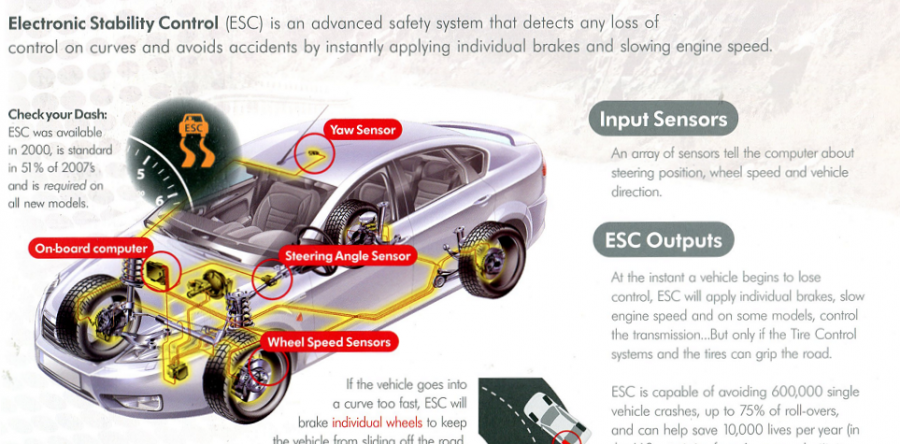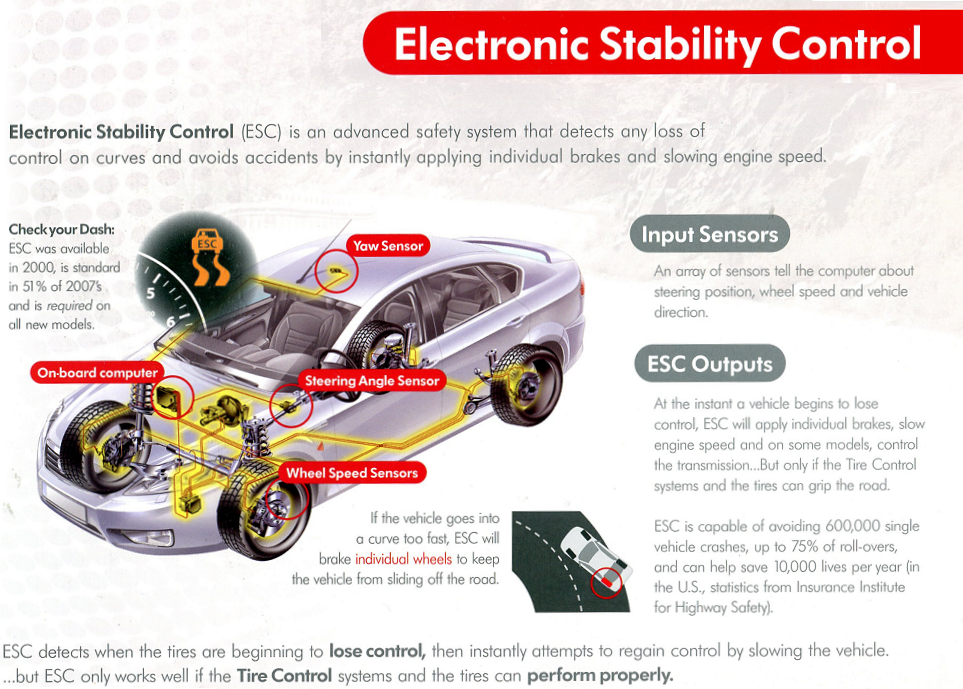The Electronic Stability Control, abbreviated as ESC, is a technology that helps ensure the safety of a car. The technology is also referred to as the Electronic Stability Program (ESP). The Electronic Stability Control was introduced in the 1990s by Bosch, one of the top auto-parts manufacturer, and was first employed in a Mercedes Benz vehicle. The ESC was available as an added feature in the vehicles produced in the 2000s. Nearly 50% of the vehicles rolled out around the year 2007 have the ESC included in them. The ESC has served as a basis for many automotive safety techniques in use today.
This page concentrates on the importance and functions of Electronic Stability Control. We hope you find it informative and useful. Happy reading!
| |
|
|
Why I need an ESC in my car?
The Electronic Stability Control is an advanced safety system that is deployed in automobiles to ensure a safe maneuvering while rounding a corner or making sharp turns.
What does the ESC actually do?
While driving the vehicle, the ESC continuously monitors the movement of the steering wheel and the corresponding movement of the wheels. When the ESC finds a mismatch between the steering wheel movement and that of the car's wheels, it comes into play. This can be during circumstances where the vehicle understeers, oversteers or when there is hydroplaning. In such conditions, the ESC will apply the brakes on the wheels individually to keep your car from losing control and spinning off the road. It also immediately reduces the engine speed and controls the transmission.
The course of this action is accomplished by the assistance from the Engine Control Unit (ECU), traction control system and the anti-lock braking system (ABS). The ESC also implements a number of different sensors that allow it to detect when the driver has lost control. The ESC is highly useful in reducing skidding, especially in high-performance vehicles. When the ESC comes into the picture, it is often brought to the notice of the driver by an indicator light in the vehicle's dashboard.
It is to be known that the ESC is not a performance technology but is included in vehicles as a safety feature. It is basically there to restore the traction of the vehicle.
ESC makes cars safer. Records have shown that the electronic stability control has prevented a considerable number of fatal accidents: The Insurance Institute for Highway Safety (IIHS) estimates that the ESC can save 10,000 lives per year by avoiding 600,000 single vehicle crashes and 75% of roll-overs. This is why the government has mandated that ESC becomes a necessary feature on all new cars rolled out after 2012.
Why is ESC important for buying shocks?
There are a lot of shocks and struts being made out there that are not compatible with ESC systems. If you put a new shock or strut on your car that is not compatible with ESC, the car will not be drivable. It is important to know whether the shocks that you are fitting on your vehicle are compatible with your car.
BuyAutoParts.com's specialists have penned down a lot of articles on various automotive domains. For more articles, please refer to our how-to section. If you are in need of more information that is not contained in our articles, please let us know your needs via our toll-free number or send us an e-mail. We have a dedicated customer support to answer all your queries.



